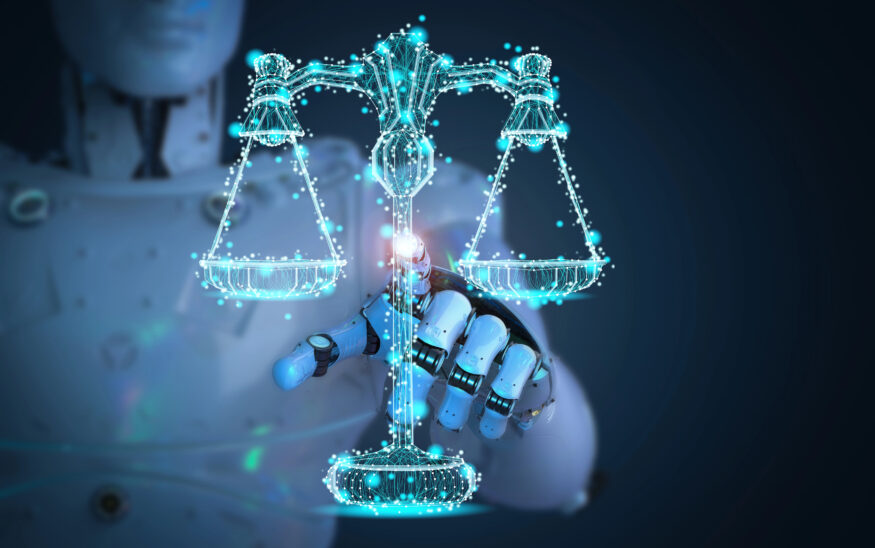Caution surrounds firm’s AI usage
By: MaryBeth Matzek, Special to the Wisconsin Law Journal//July 16, 2024//
Caution surrounds firm’s AI usage
By: MaryBeth Matzek, Special to the Wisconsin Law Journal//July 16, 2024//
Attorneys looking to save themselves some time by using Chat GPT or other new AI tools may not be doing themselves any favors.
“Anyone looking to use Chat GPT in their practice needs to be cautious. It’s not always accurate,” said Rebecca Blemberg, an adjunct professor at Marquette University Law School.
A New York attorney, Steven Schwartz, found out the hard way last month when it was revealed he used Chat GPT to research similar cases while pulling together a filing for his client. The AI bot delivered fake cases, which the defendant’s attorneys uncovered when they went to research the cases mentioned. Schwartz said he did not intend to mislead the court and misunderstood how Chat GPT worked. The judge in the case is weighing sanctions against Schwartz.
Stacie Rosenzweig, an attorney with Halling & Cayo S.C. in Milwaukee said Chat GBT and other AI bots are known to “hallucinate,” which means it produces incorrect, misleading or illogical information. She said there is a lot of discussion about AI and how it may help or hinder attorneys’ work.
“Attorneys need to know that it exists and understand how it works. The cases that AI finds may sound real, but they are not. My advice to any attorney using AI is to double-check any information it provides,” she said. “If you can’t confirm something, do not use it in a brief.”
AI platforms are trained on existing databases of images and text and taught to generate answers based on the database, but they often conflate information or create false responses.
As AI is integrated into search engines and legal software, attorneys need to be aware of its presence, said Rosenzweig, who also blogs about legal ethics and law practice at Ethicking.com.
“People talk about AI in regard to its risks and drawbacks,” she said. “I don’t think many attorneys will be jumping in to using it, but they still need to be aware that it exists and where it’s being used.”
Blemberg said there are ethics attorneys need to follow when it comes to AI, such as maintaining client confidentiality. Plugging information into Chat GPT about a particular client or case would be a confidentiality breech since AI learns from the information people input from it.
“If you are using AI in research, that should probably be disclosed, too,” she said, adding that someday law firms may have different fee scales for what work a staff member did on their own versus work done using AI.
AI is still evolving, and no one is sure where it will go so it’s essential attorneys do their best to stay on top of technology, Rosenzweig said.
“No one can say what it will all do. There may be an obligation at some point to use it or not. For example, when email came out, there was discussion about whether to use it but now you need an email address to file a case. It became a logistical obligation to use it,” she said. “Who knows? We may see that with AI.”
But AI is not there yet, which is why so many in the legal profession remain cautious about it. Blemberg said her students are curious about it, but they also realize it is not something they can rely on. She and other Marquette instructors have used AI in their classes. For example, students asked AI to create questions for a deposition for a dog bite lawsuit.
“Some questions were good, but others were completely off,” Blemberg said. “It showed students that AI can only do so much. I think students knew that already, but this showed it to them in black and white.”
Blemberg and Rosenzweig can foresee ways that AI can potentially help attorneys. Rosenzweig said AI could potentially be used to create a basic lease but “of course you would need to customize it.”
Blemberg hopes AI makes the legal field a little less stressful.
“Maybe there’s a way AI can create some space so everything isn’t so hectic all the time for attorneys,” she said. “Maybe they can get some things off their plate so they can help more people who need legal assistance.”
Like other groundbreaking technology before it, including computers, the fax machine, email and cell phones, Rosenzweig predicted attorneys will eventually utilize it.
“When fax machines were introduced, some people were very hesitant, but eventually they were added. Law firms are going to have to look at the technology and decide what’s best for them,” she said. “Reaching out to your IT vendor would be a good place to start if you’re wondering how AI fits into what you’re doing.”
Blemberg’s advice to her students seems appropriate to all attorneys when it comes to AI: “Be curious but be cautious.”
Legal News
- Trump-appointed federal judge rules Trump’s classified document case is unconstitutional
- A ‘police dialogue team’ from Ohio is facilitating peaceful protests during the RNC. Here’s how.
- Project 2025 defended at Milwaukee event
- Caution surrounds firm’s AI usage
- How Hmong women in Wisconsin are tackling domestic violence in their communities
- Beloit School District rescinds scholarship’s racial eligibility criterion following WILL’s legal threat
- Day One RNC: Trump taps VP; protests erupt during nomination
- Law enforcement from Tulsa to Maryland and North Carolina volunteer to assist during RNC
- Republicans are gathering in Milwaukee to nominate Donald Trump again. Here’s what to expect
- Wisconsin election officials tell clerks best ways to operate absentee ballot drop boxes
- Family vows during funeral to push for charges after Black man pinned to ground outside Milwaukee hotel
- Melania Trump will attend the Republican convention in a rare political appearance, AP sources say
Case Digests
- Absentee Ballot Drop Boxes
- Separation of Powers- Legislative Oversight of Executive Actions
- Notice of Recommitment and Involuntary Medication Hearings
- Firearm Possession-Sufficiency of Evidence
- Motion for Substitute Counsel
- Jury Instructions
- Equal Credit Opportunity Act
- Fourth and 14th Amendment Rights-Parental Medical Neglect
- Eminent Domain
- Intrusion Upon Seclusion Claim-§1983 claim
- Employment Law- Title VII
- Employment Law












